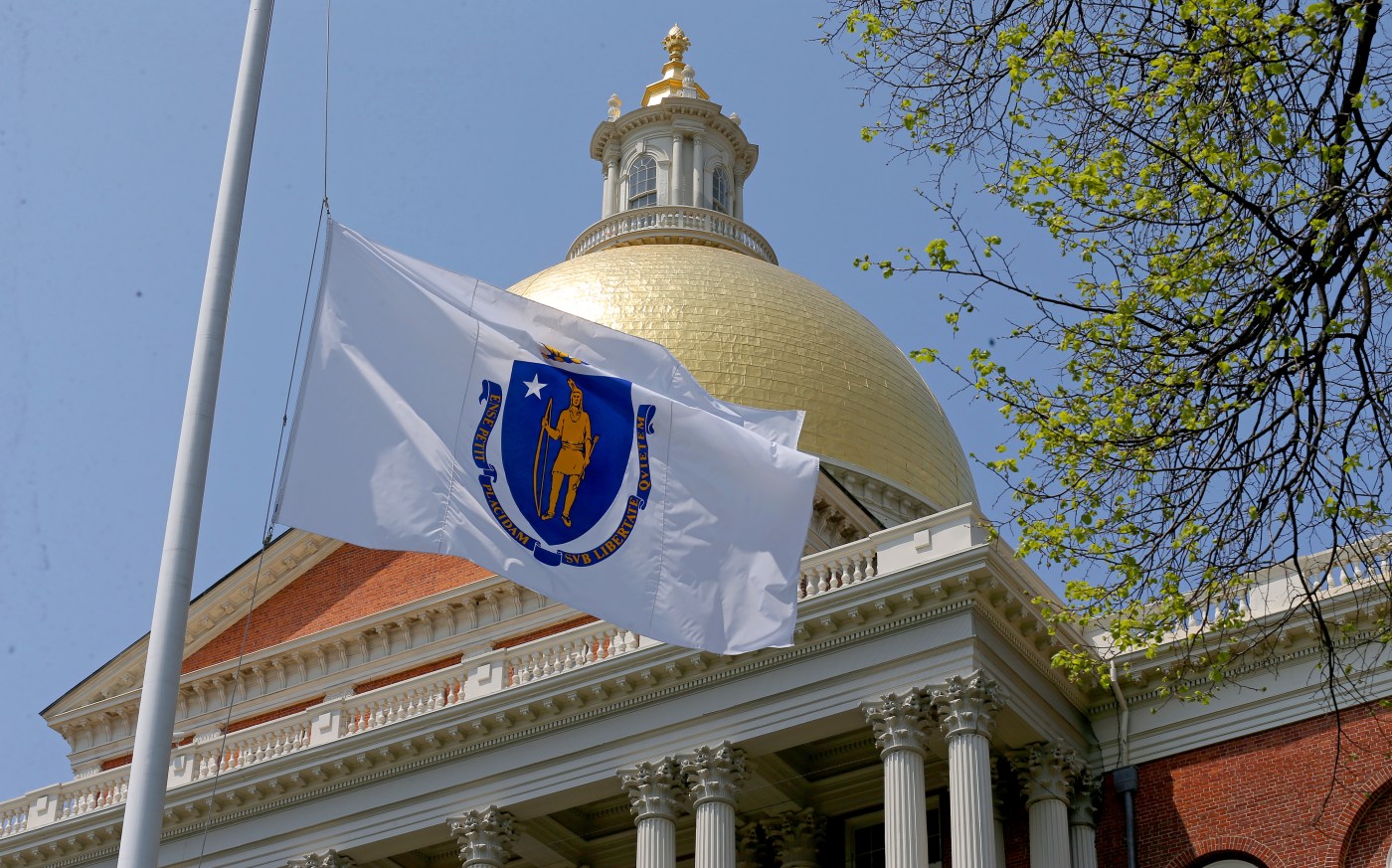
Massachusetts Republicans willing to use newfound leverage over shelter funding
Massachusetts Republicans gained unique leverage over the fate of a $2.8 billion spending bill that includes funding for emergency shelters after Democrats failed to strike a deal early Thursday morning.
Now, the minority party says they are willing to use their newfound power.
Some Republicans said they are ready to hold up the larger bill if they are not satisfied with its contents after Democratic leadership kicked negotiations into informal sessions, where any one lawmaker can block advancing legislation.
After several weeks of voicing concerns about handing an extra $250 million to Gov. Maura Healey to respond to an overburdened shelter system for migrant and homeless families, legislative conservatives could find themselves coalescing around the idea of residency requirements.
Sen. Ryan Fattman said Republicans “definitely have leverage” and “should use that leverage” as he pointed to amendments he filed during the Senate’s debate of the supplemental budget that would have put in place a one year, six month, or three month residency requirement for shelter eligibility.
“I think that’s something that should be included if we’re going to pass this up in an informal session,” the Sutton Republican told the Herald. “The House had changed the rules of SNAP benefits for migrant individuals in a corrective amendment back when they took up the supplemental budget, I don’t think that that should be included.”
Top House and Senate Democrats found themselves in disagreement this week over how many restrictions to put on Healey’s ability to spend $250 million to respond to a surge in migrant arrivals that has pushed the state’s shelter system to the brink of collapse.
House lawmakers wanted more guardrails like the requirement to use $50 million to build an overflow site within 30 days for families placed on a waitlist for shelter. But the Senate argued the Healey administration should have more “flexibility” with the money.
Democrats could not find agreement on competing versions of the supplemental budget more than two months after Healey first put in her request for more money and as time for formal law making eventually ran out early Thursday morning
The House and Senate appointed a six-member team of negotiators to find a compromise on the multi-billion spending bill as Beacon Hill enters a holiday break. But any deal that emerges before the end of the year could run into issues if Republicans — who voted on the record this month in opposition to the bill — decide to block its path forward.
House Speaker Ronald Mariano said he plans to talk to House Republicans about “whether or not they need another vote.”
“The Republicans are on record of having voted against this,” Mariano said Thursday. “We will talk to them about that. They all have been recorded as against the bill, against any of the proposed language.”
Senate Ways and Means Chair Michael Rodrigues said he is confident the Senate “will be able to secure the votes to pass the bill once we get it through the conference.”
House Minority Leader Brad Jones said there is “definitely a possibility” that a House Republican blocks the supplemental budget in an informal session. But he cautioned that he still wants to see what ends up in any final deal, telling the Herald “I wouldn’t rule out or rule in any options.”
“It may end up being that Republicans have to be the adult in the room. And it’s a sad state of affairs that we’ve gotten to this point,” the North Reading Republican said of Democrats’ ability to negotiate a spending bill that also closes out the books on fiscal year 2023.
Rep. Peter Durant, a Spencer Republican who will be sworn-in as a state senator later this month, said advancing shelter funding during an informal session grants conservatives a “unique opportunity … to hold some sway, to hold some influence over what happens here.”
He said it is “not unreasonable” to put in some demands and “actually look at shutting down the session if we can’t get some concessions.” Durant also pointed to the residency requirements as an issue that is “not an unreasonable request.”
“If as a caucus, that’s the direction we decide and we want to hold up session, I’m behind that 100%,” Durant told the Herald.
Fattman, Durant, and Jones all agreed that the late-night failure to produce a deal on the spending bill reflected poorly on legislative Democrats, with Fattman likening them to “the New England Patriots.”
“Clock mismanagement, failed leadership. There’s just a lot of finger pointing and abdication of responsibility. And to not get the supplemental budget done, I think it’s just highlighting bad government,” Fattman said.


